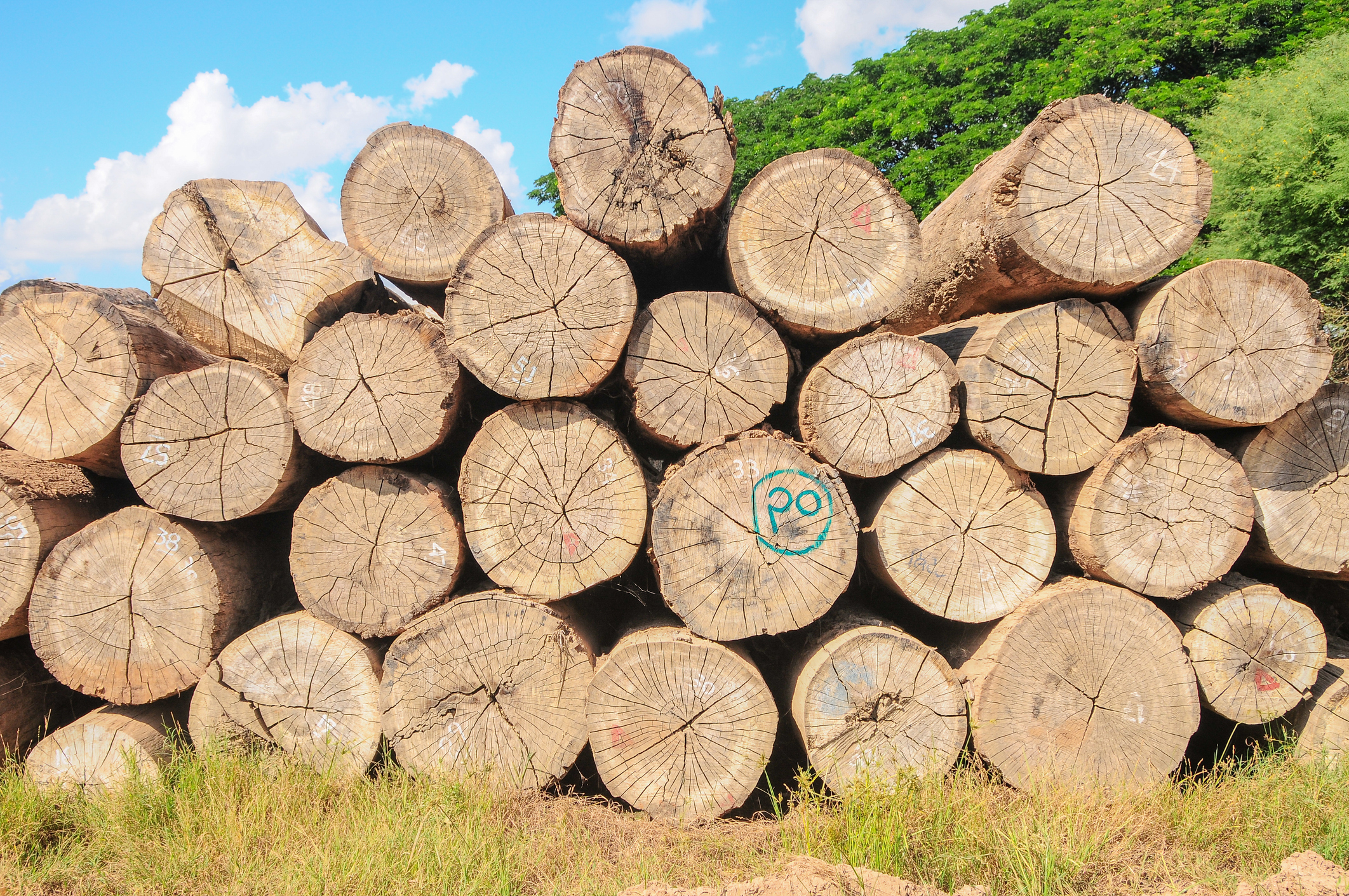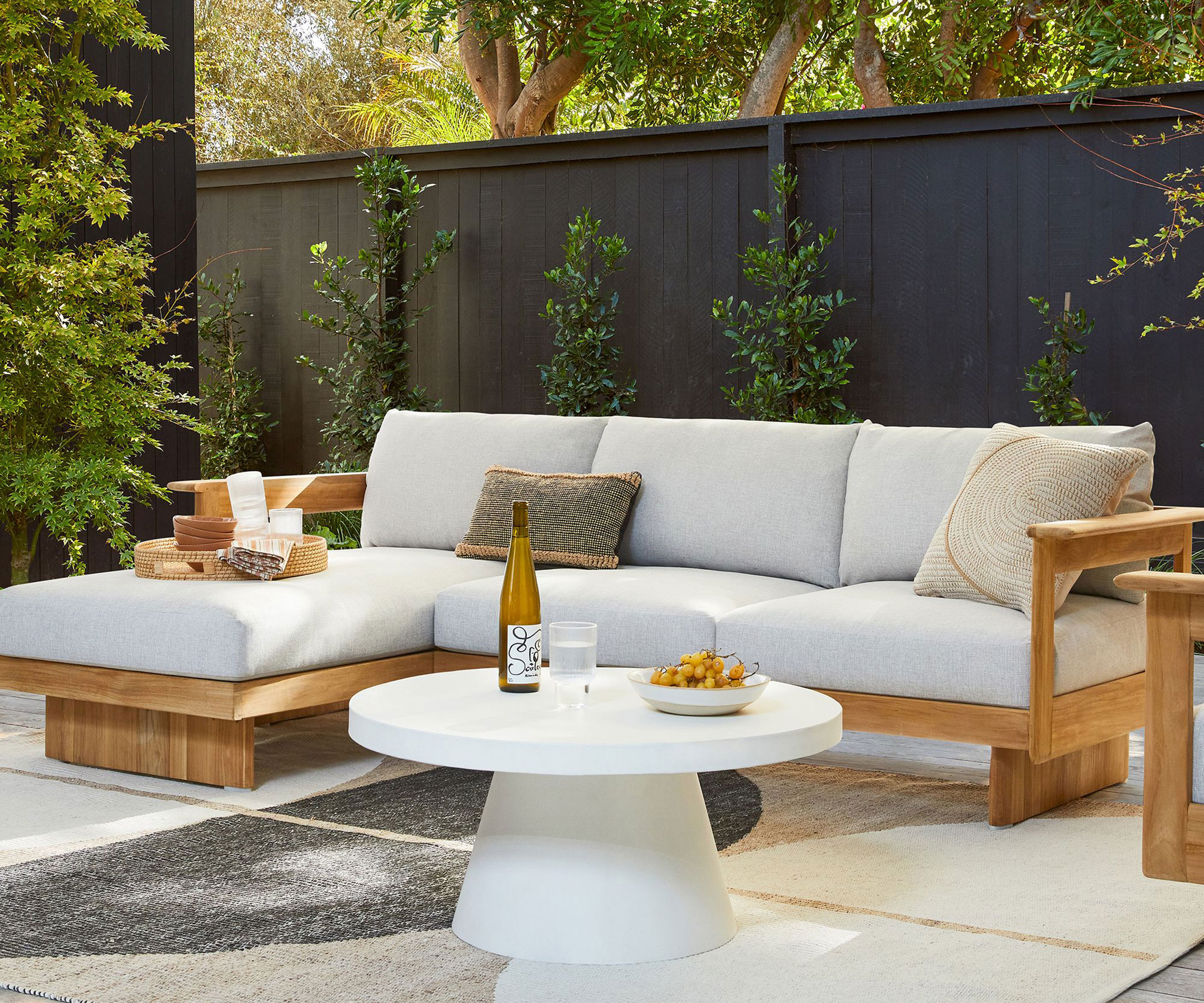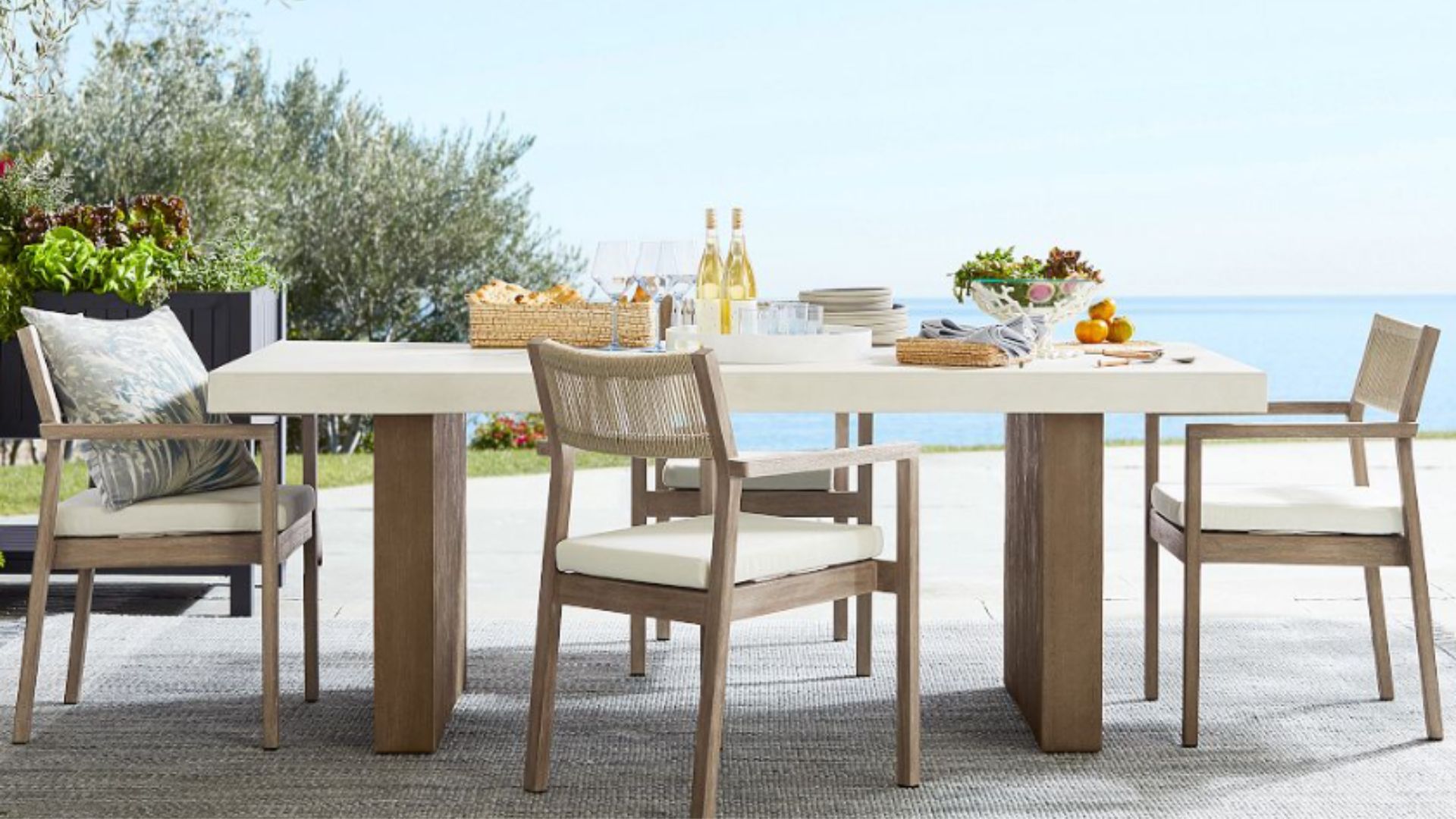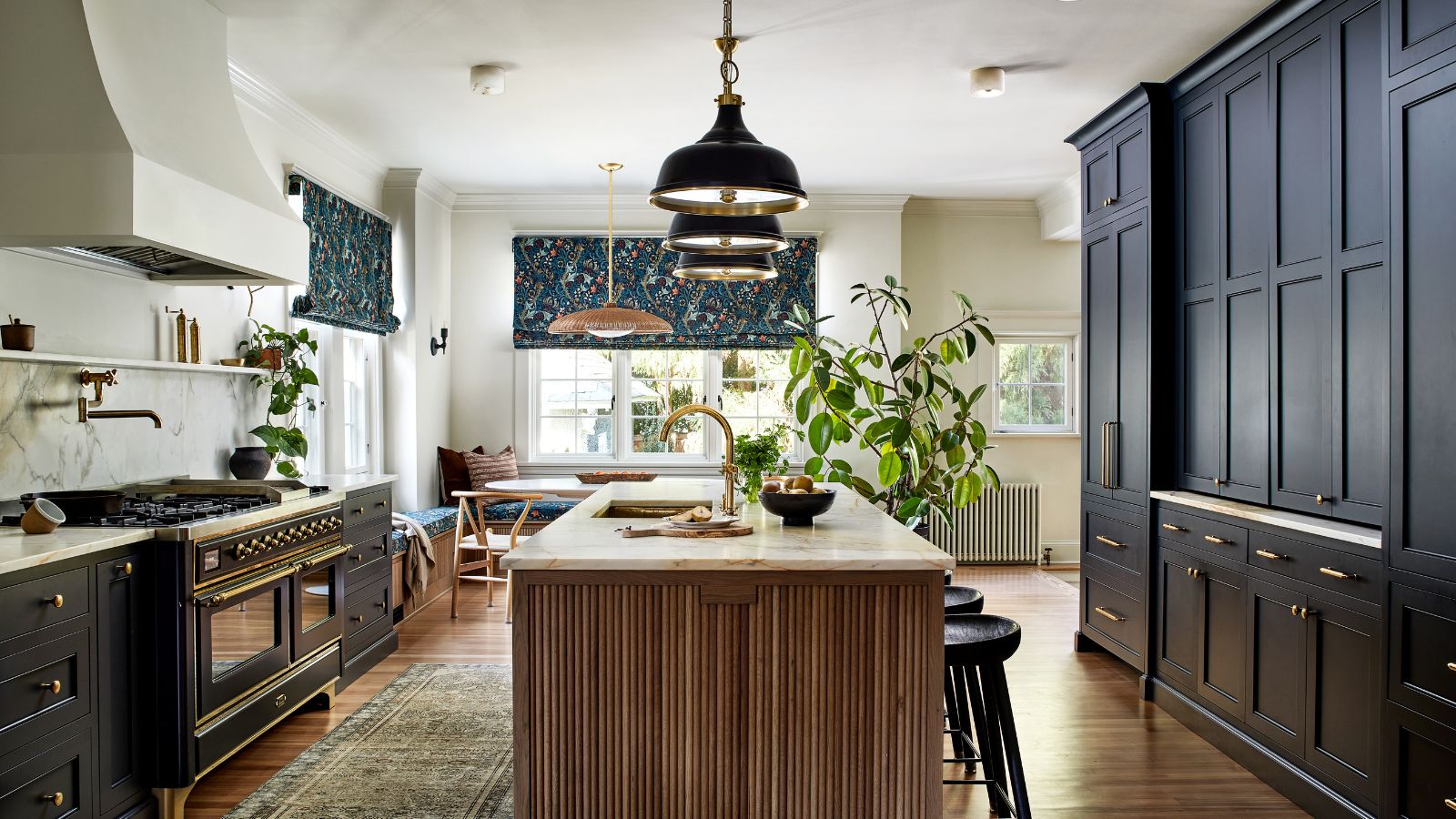Is teak furniture immoral? Why we no longer recommend our former favorite
It's a strong, water-resistant hardwood, but Myanmar teak is sanctioned by the US government.


A few weeks ago, if someone asked me the best wood for outdoor furniture, I'd almost always recommend teak. It's a naturally water-resistant hardwood that looks great even without a stain, so it's perfect for high-end luxury furniture. I always thought that the only drawback was the price.
However, a recent report by the Environmental Investigations Agency has made me utterly rethink my advice. The significant amount of teak in the US furniture market comes from Myanmar. According to Thomas Chung, Senior Forests Campaigner at the EIA, there is no way to buy Myanmar teak 'legally, let alone ethically'.
Myanmar teak is under sanctions in the US, UK, Canada and the EU for its role in bankrolling the military junta in Myanmar. Not only that, but teak logging in Myanmar is a leading cause of deforestation. Here's everything you need to know about this former favorite hardwood, alternative ethical sources, and other woods to consider for outdoor furniture.
What's the issue with Myanmar teak?

Teak logs in Monywa, Myanmar, 2014
When the current government in Myanmar seized power in 2021, they also took control of the country's teak trade. That's because teak is an incredibly popular and expensive wood. It's so water-resistant that not only is it used in outdoor furniture, but it's also used for decks on yachts. This makes teak exports it's a significant income stream for the military junta in Myanmar, sometimes referred to as 'blood teak'.
This in turn means that Myanmar is logging its natural teak forests beyond sustainable levels. According to the EIA, 'if deforestation in Myanmar continues at its current rate, the country’s forests will disappear by 2035'.
For these reasons, the US, Canada, UK, EU and Switzerland have all placed sanctions on teak from Myanmar. Import and sale of this teak is illegal. However, the EIA has found several suppliers and manufacturers who still use Myanmar teak.

These suppliers defend themselves on the grounds that they own teak stockpiled before the coup in 2021. However, these stockpiles are often sold as whole lots, with post-coup logs included in the stockpile.
It's difficult - if not impossible - to track the source of this wood, and even DNA testing can be suspect, with one DNA testing company under suspicion by the EU for its links to the junta.
Even teak that's supposedly from neighboring countries can be implicated. Teak sold in the US market as 'Indian' or 'Chinese' is often Myanmar teak sold into these countries. While it is technically 'Indian teak', traded from an Indian port into the US, this teak actually comes from Myanmar.
Are there alternative teak sources?
All of this means that it can be incredibly difficult to know if your teak is ethically sourced. It can seem like there's no ethical way to buy teak furniture, but there are a few legitimate sources. For example, Thomas Chung particularly recommends Indonesian teak, as these products 'come certified under the Indonesian timber legality assurance system (SVLK)'.
You don't just have to trust the Indonesian government; the Forest Stewardship Council also certifies Indonesian teak. Tallulah Chapman, Communications Manager at the FSC, says that 'there are 5 FSC forest management certificates in Indonesia with teak within their scope'. These certified forests 'are independently audited to confirm that the forest is being managed in a way that preserves biological diversity and benefits the lives of local people and workers'.
Other Southeast Asian countries like Thailand, Laos, and Vietnam also produce ethical teak. Chapman also points to the increasing production of teak in Central and South America, with teak production ramping up in Costa Rica, Brazil, and Columbia.

Tallulah graduated from the University of Sheffield with a BA in English Language and Literature in 2006. She worked in theatre marketing and furniture design/manufacture, before starting with FSC UK in 2007. Since then, she has worked in a variety of roles, from fundraising to advising and training businesses in the application of FSC certification and the use of the FSC trademarks. As head of the UK’s Communications Team, she looks for creative ways to engage and support businesses and consumers in the responsible sourcing of forest products.
Alternative woods

My personal pick for an alternative is acacia. It's sourced from all over the world, so it's easy to find ethical sources, and it's a hardwood just like teak. It's also usually cheaper than teak, but that's partly because unlike teak, it needs resealing every year. While this is of my favorite DIY tasks of the year - I love listening to a good history podcast while I sand down our acacia furniture and reseal it for the summer - this might not work for everyone.
Another good choice is bamboo. Interior designer Artem Kropovinsky recommends bamboo as a 'robust and long-lasting material with sustainable attributes'. I've found it isn't as good as teak for weathering, but it's a strong, lightweight, and cheap material for outdoor furniture.
For other options, the FSC also runs a database of lesser-known timber species, so you can compare and contrast the different species from around the world.

Artem is the founder of Arsight, a New York-based inteior design agency specialising in residential and commercial interior design.
Teak FAQs
How do I know if my teak is ethically sourced?
Good retailers will list their teak sources - for example, Outer is clear that their teak comes from central Java. If you're thinking about buying a piece of teak furniture and are unsure of the provenance, you can ask the company's customer service. If they're at all cagey about where their teak comes from, I'd make a different choice.
Should I throw away my old teak furniture?
If your furniture was bought before 2021, it's not implicated in the ethics here. There's not much point throwing away furniture that could be implicated if you were mislead about its provenance, but you should be careful in future about the source of your wooden furniture.
Final thoughts
Don't think that all teak is compromised by ties to Myanmar. If you can find ethical sources, its a hard-wearing wood that can stand u to pretty much any weather. However, finding ethical teak isn't easy, so unless you're absolutely certain where your teak comes from, I'd steer well clear.
Sign up to the Homes & Gardens newsletter
Design expertise in your inbox – from inspiring decorating ideas and beautiful celebrity homes to practical gardening advice and shopping round-ups.

As a gardens and lifestyle contributor, Alex makes sure readers find the right information to help them make the best purchase. Alex got his start in reviewing at the iconic Good Housekeeping Institute, testing a wide range of household products and appliances. He then moved to BBC Gardeners’ World Magazine, assessing gardening tools, machinery, and wildlife products.
-
 Martha Stewart's intelligent cabinets 'take every inch into consideration' – their 'visually light' style will solve your small kitchen storage problems
Martha Stewart's intelligent cabinets 'take every inch into consideration' – their 'visually light' style will solve your small kitchen storage problems'Every kitchen can be beautiful and functional, no matter what the size': 9 years since sharing her clever storage, Martha's cabinets are just as beautiful
By Megan Slack
-
 This once-dated kitchen is now a timeless space with the coziest details – and its the classic color palette that's made it a chic, welcoming space
This once-dated kitchen is now a timeless space with the coziest details – and its the classic color palette that's made it a chic, welcoming spaceWarming colors and natural materials combine to create this enduringly classic kitchen scheme
By Molly Malsom